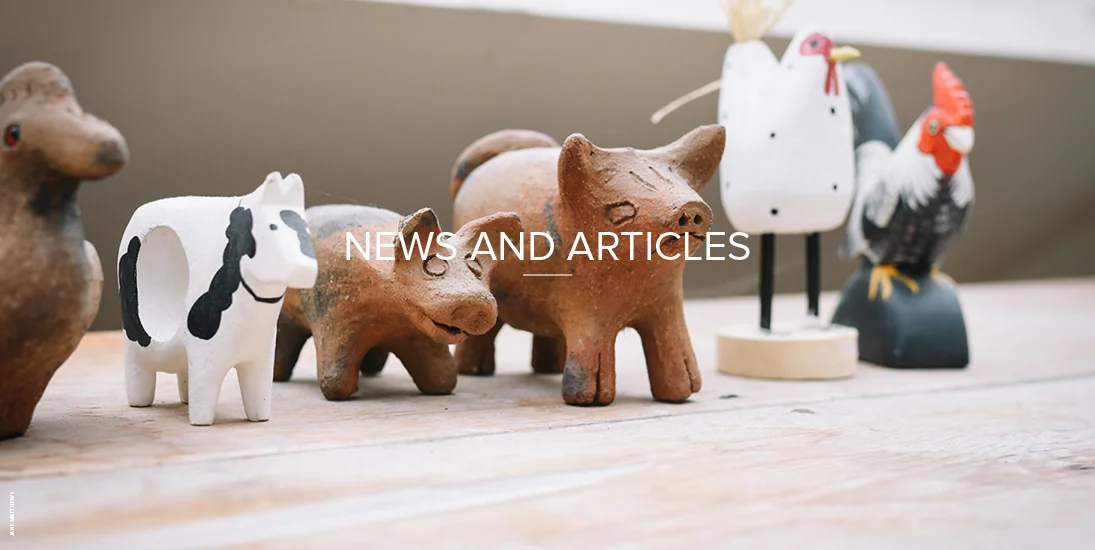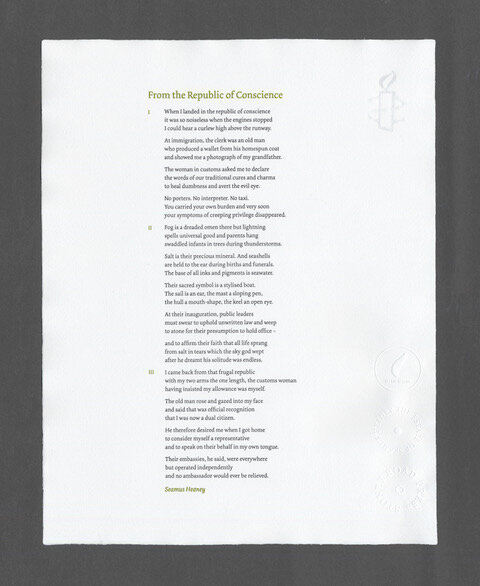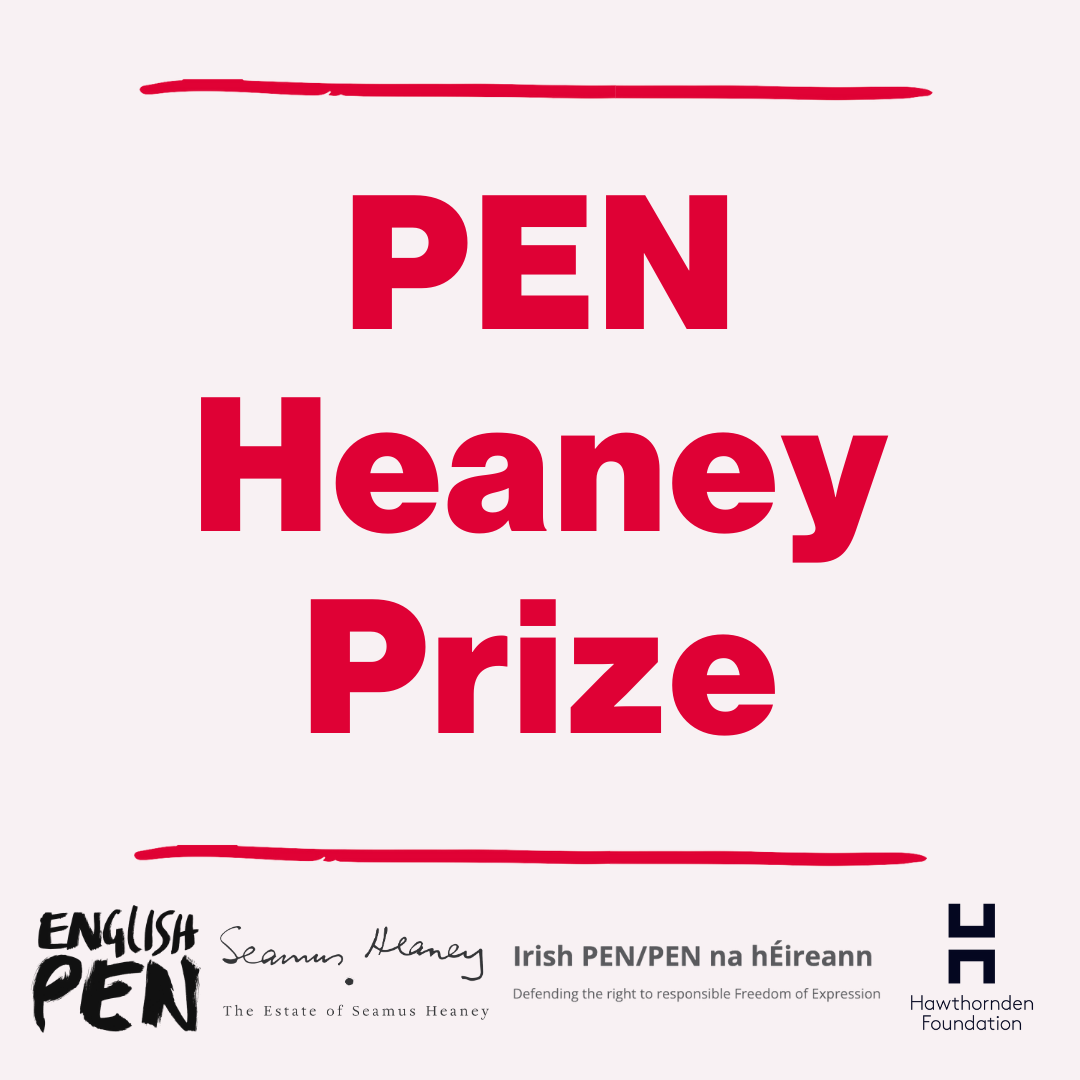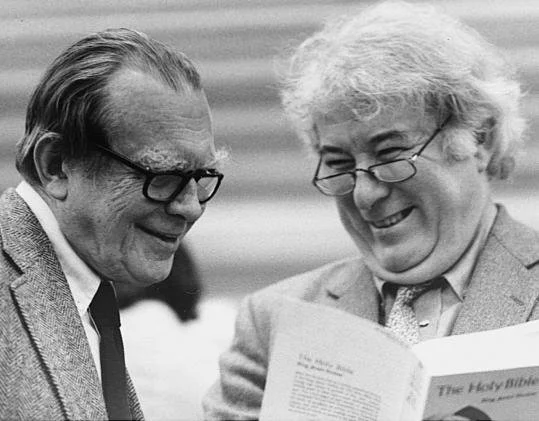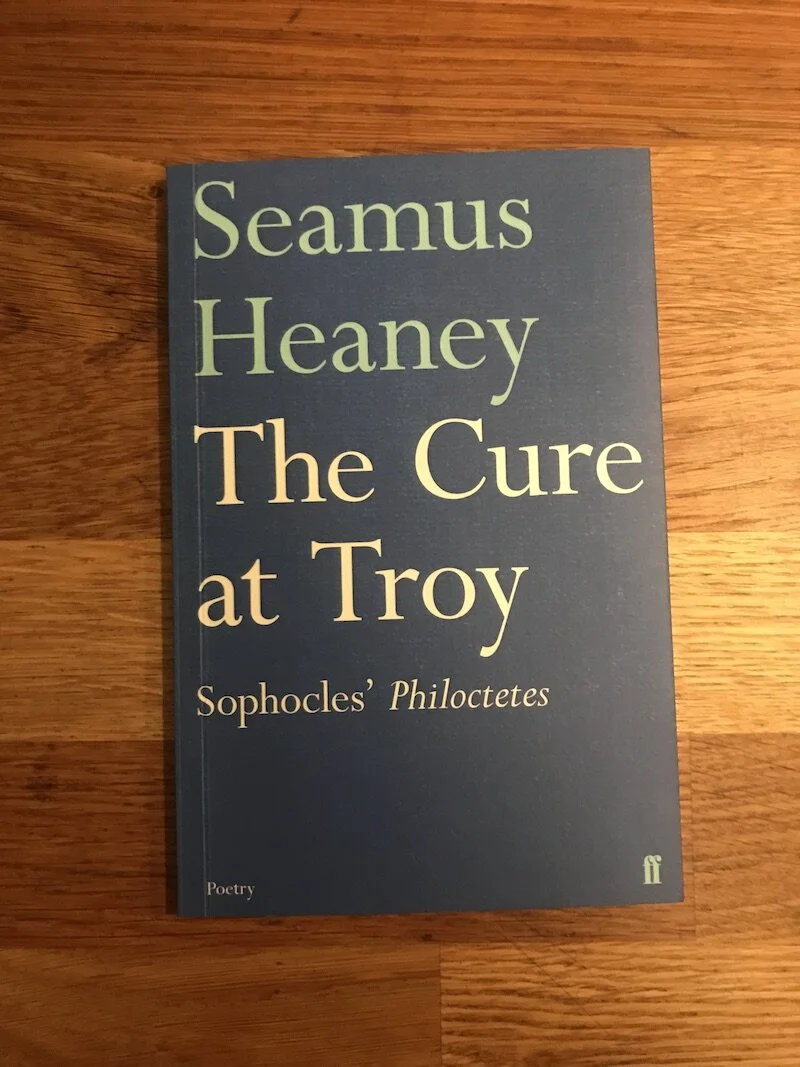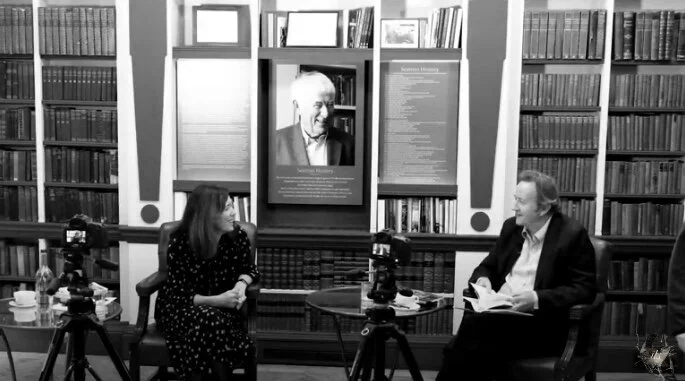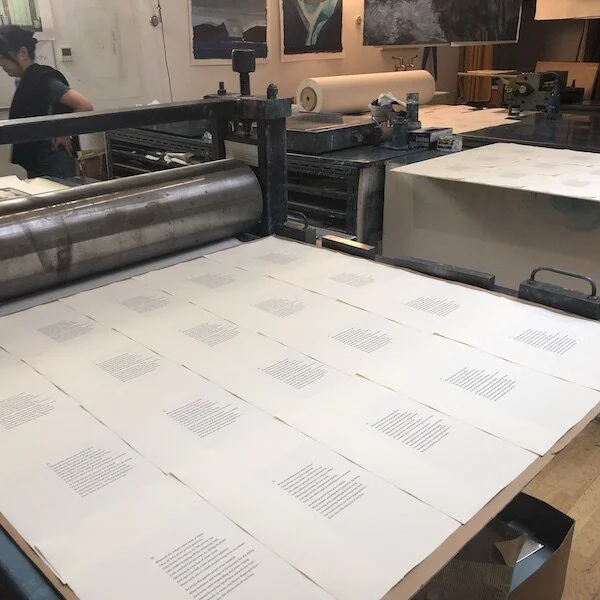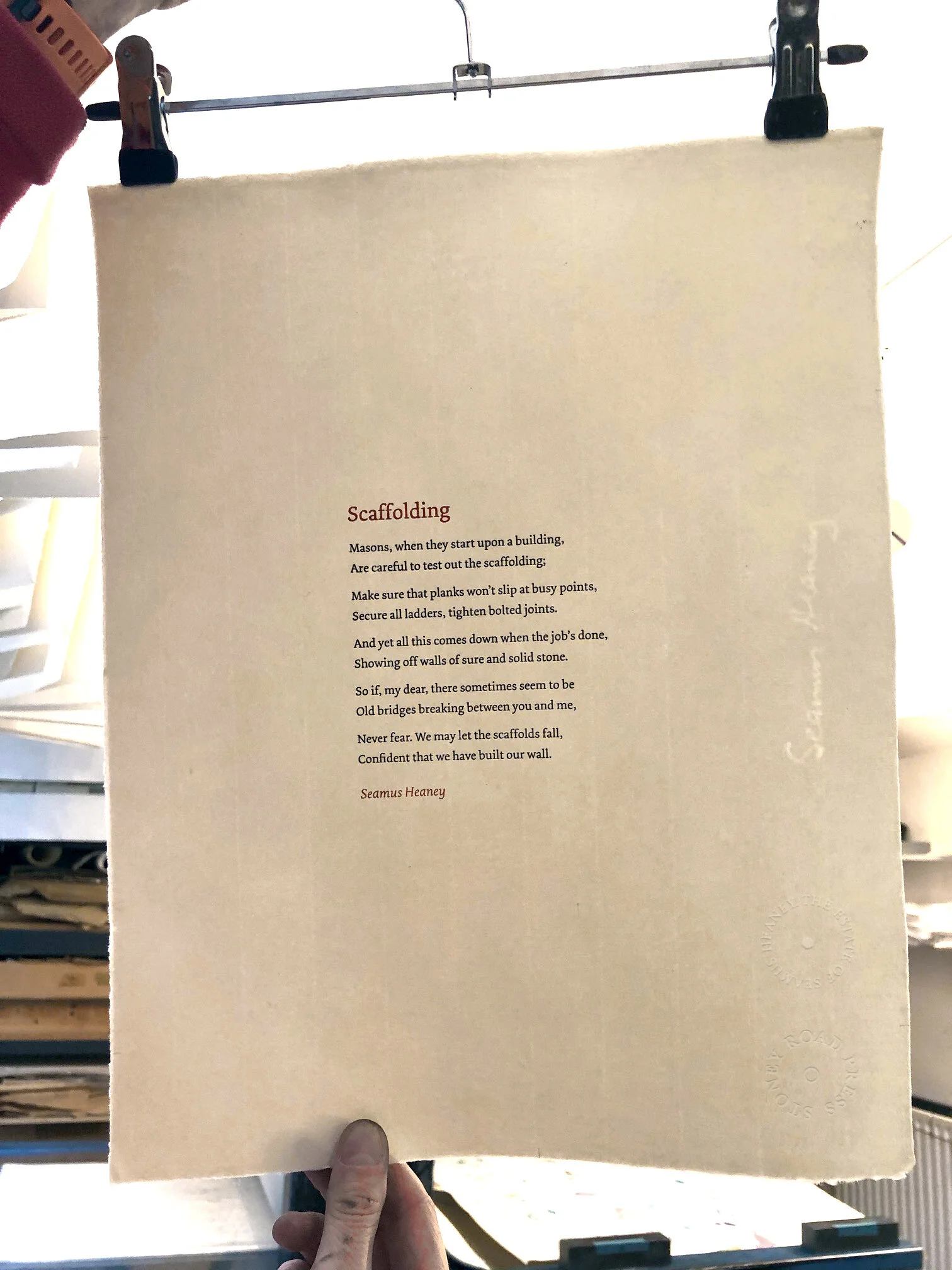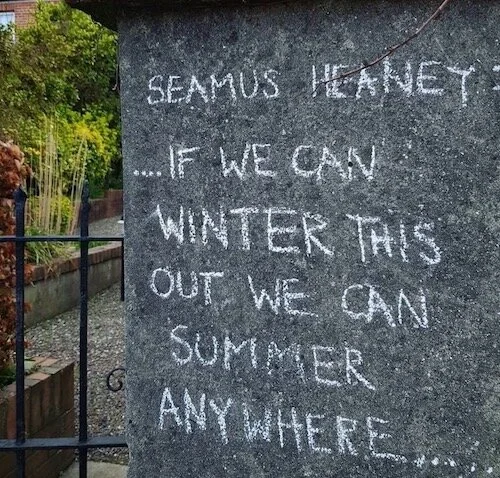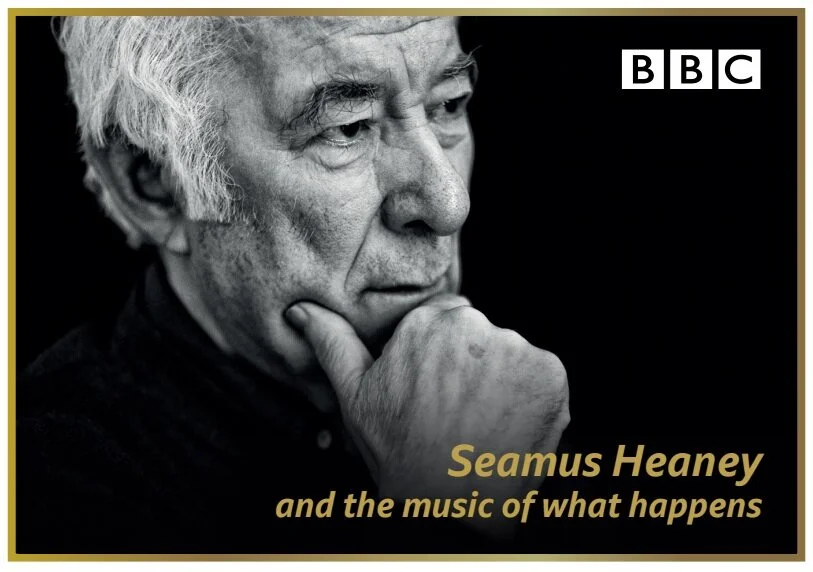Dear Mary Fogarty,
Since I wrote to you this morning, I got moving on the notion of conscience and this strange enough but I think good enough poem emerged with the pleasure and surprise of the genuine article. If it pleases you then I am very happy that you should have it.
This is all very sudden and it may be that I’ll want to revise the thing. But for the moment I send it for your consideration. I must apologies for its being in longhand but my typewriter jammed on me this morning.
Yours sincerely,
Seamus Heaney
With this unprepossessing and characteristically modest covering letter from 1985, Seamus Heaney submitted a first draft of his renowned poem ‘From the Republic of Conscience’ to Mary Fogarty, then head of the Irish branch of Amnesty International. He had originally been approached by Amnesty – who sent him reports about the suffering endured by prisoners of conscience around the world – to write something for their cause but had declined the commission because, as he later put it in Stepping Stones, “no cry I could have made in verse could have matched what was crying out in the dossiers”. But then, having landed on the notion of Conscience as a place, he found a way into the task and the “good enough” poem was born.
‘From The Republic of Conscience’ would go on to be the inspiration for Amnesty’s highest honour, the Ambassador of Conscience Award, given to artists, public figures and activists who have used their talents to defend human rights and fight for justice throughout the world. Past awardees have included Nelson Mandela, Malala Yousafzai, Harry Belafonte and Mary Robinson. Presenting the inaugural award to the Czech playwright and president Václav Havel in Dublin in 2003, Heaney said that “the effort of creative individuals can promote a new order of understanding in the common mind, an understanding that precedes and prepares for the establishment of new social and indeed legislative conditions”. His own belief in “art in the light of conscience” was what underpinned his decades-long relationship with Amnesty and its work.
We share the poem today, on the occasion of Amnesty International’s 60th anniversary, and the original hand-written letter that accompanied it (now on display at the National Library of Ireland’s Seamus Heaney: Listen Now Again exhibition in Dublin). To celebrate the anniversary, Stoney Road Press in association with Art for Amnesty and the Estate of Seamus Heaney have produced a limited edition, hand-printed broadside of the poem, available at stoneyroadpress.com.
We salute the ongoing work done by Amnesty, whose message of humanity and hope resonates more than ever today.

